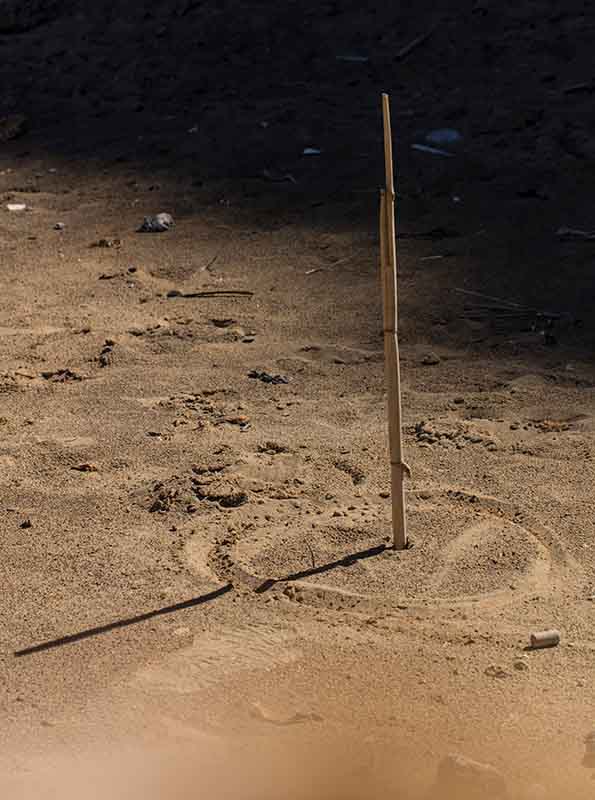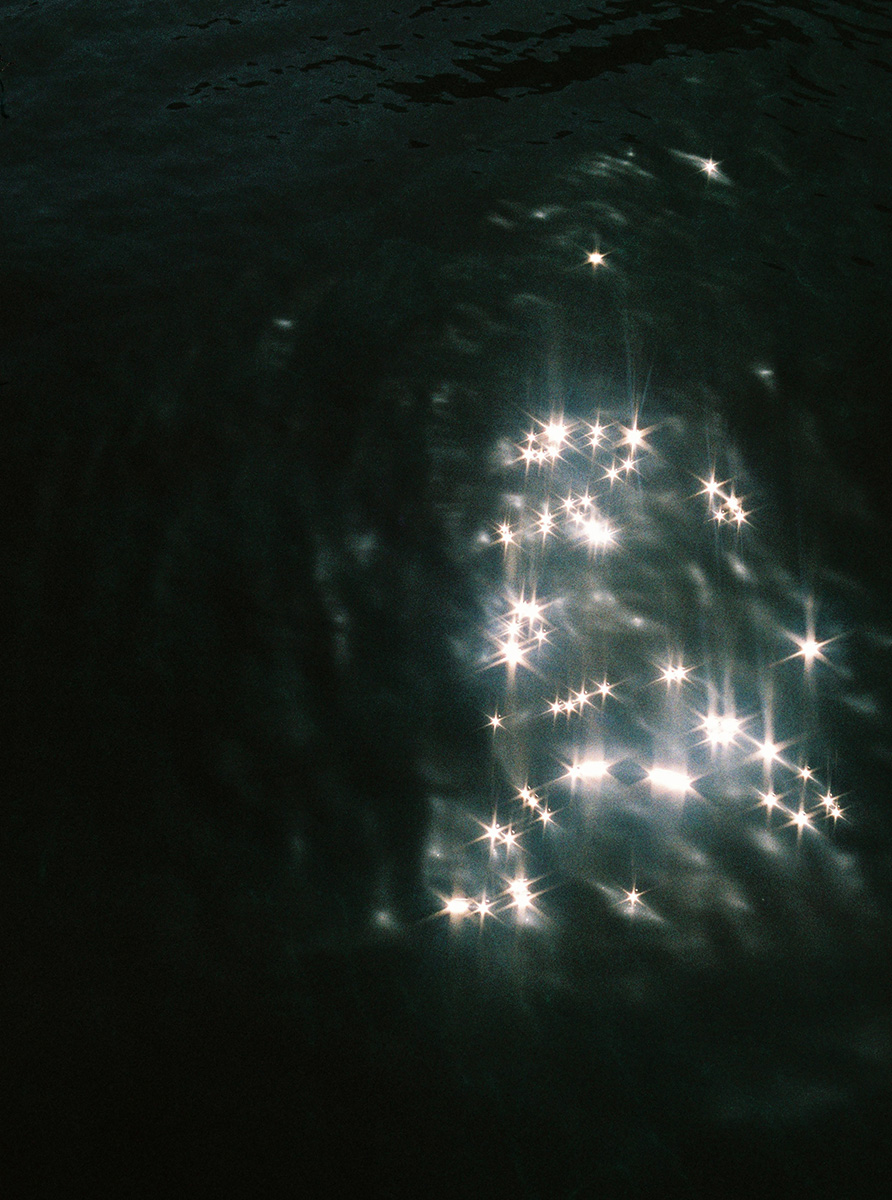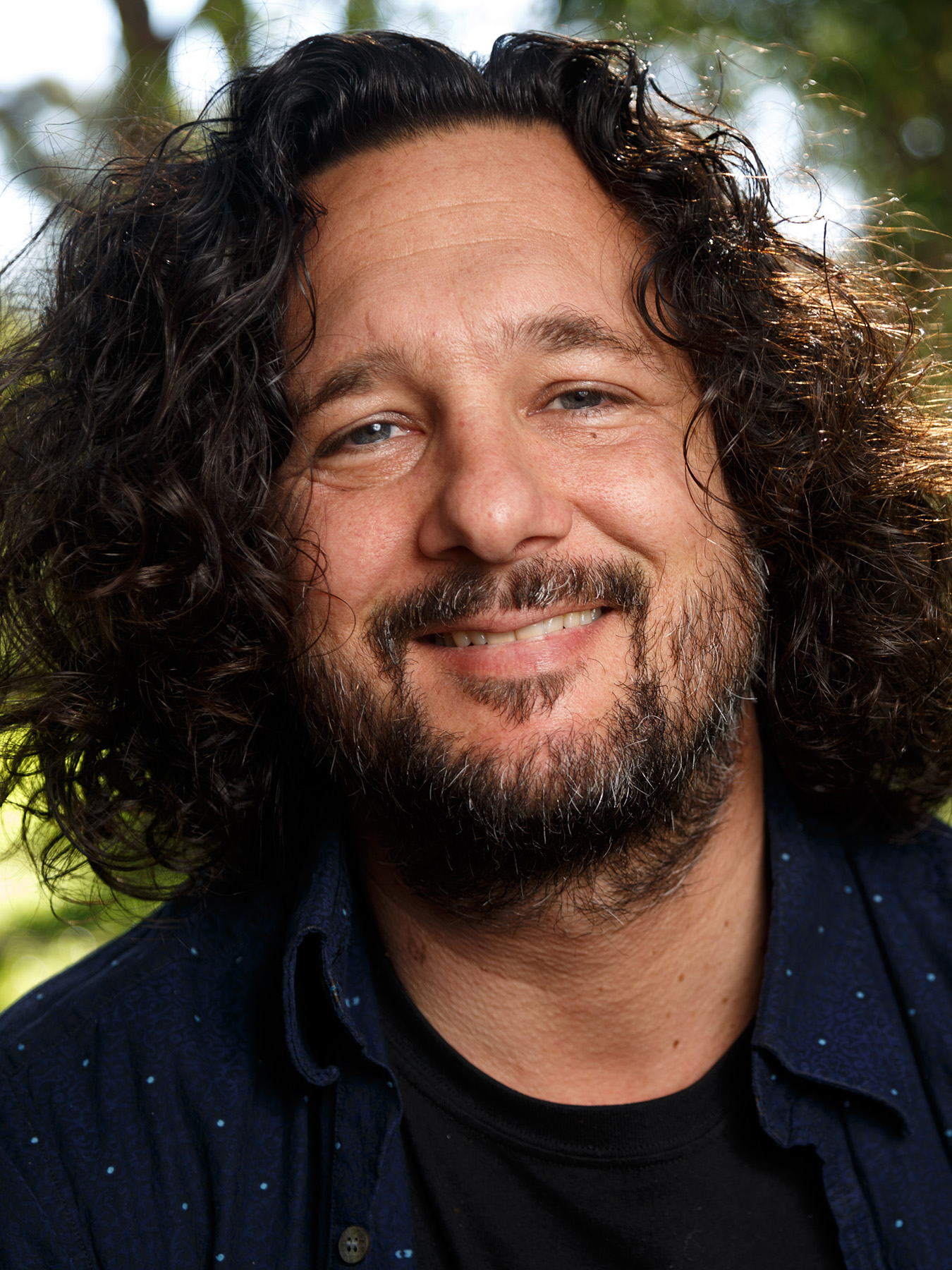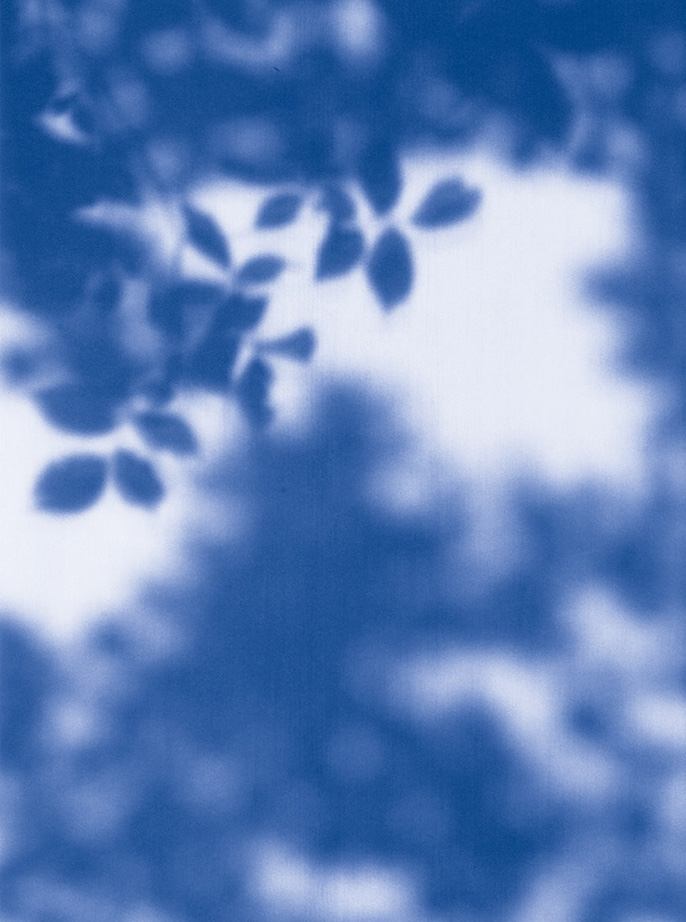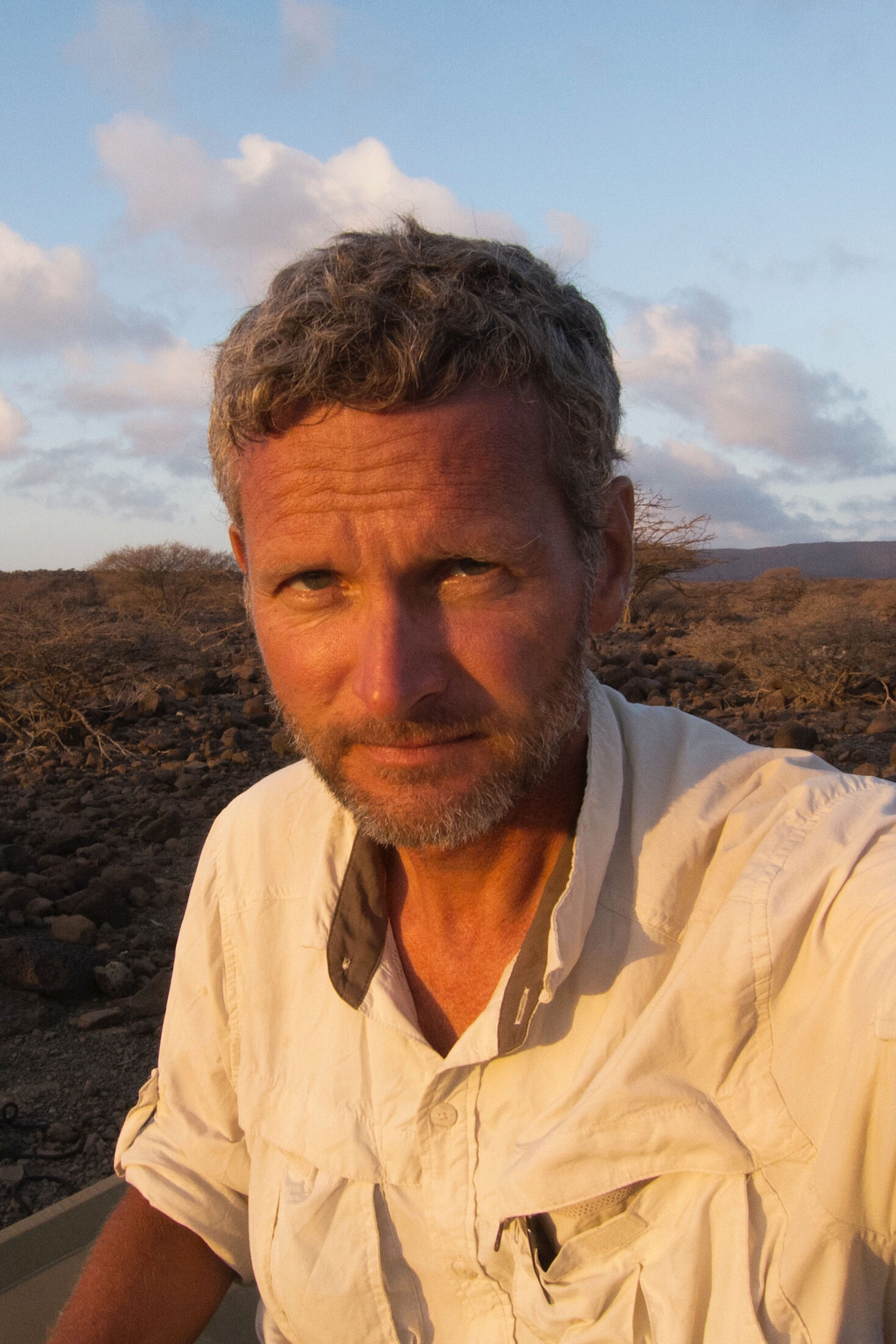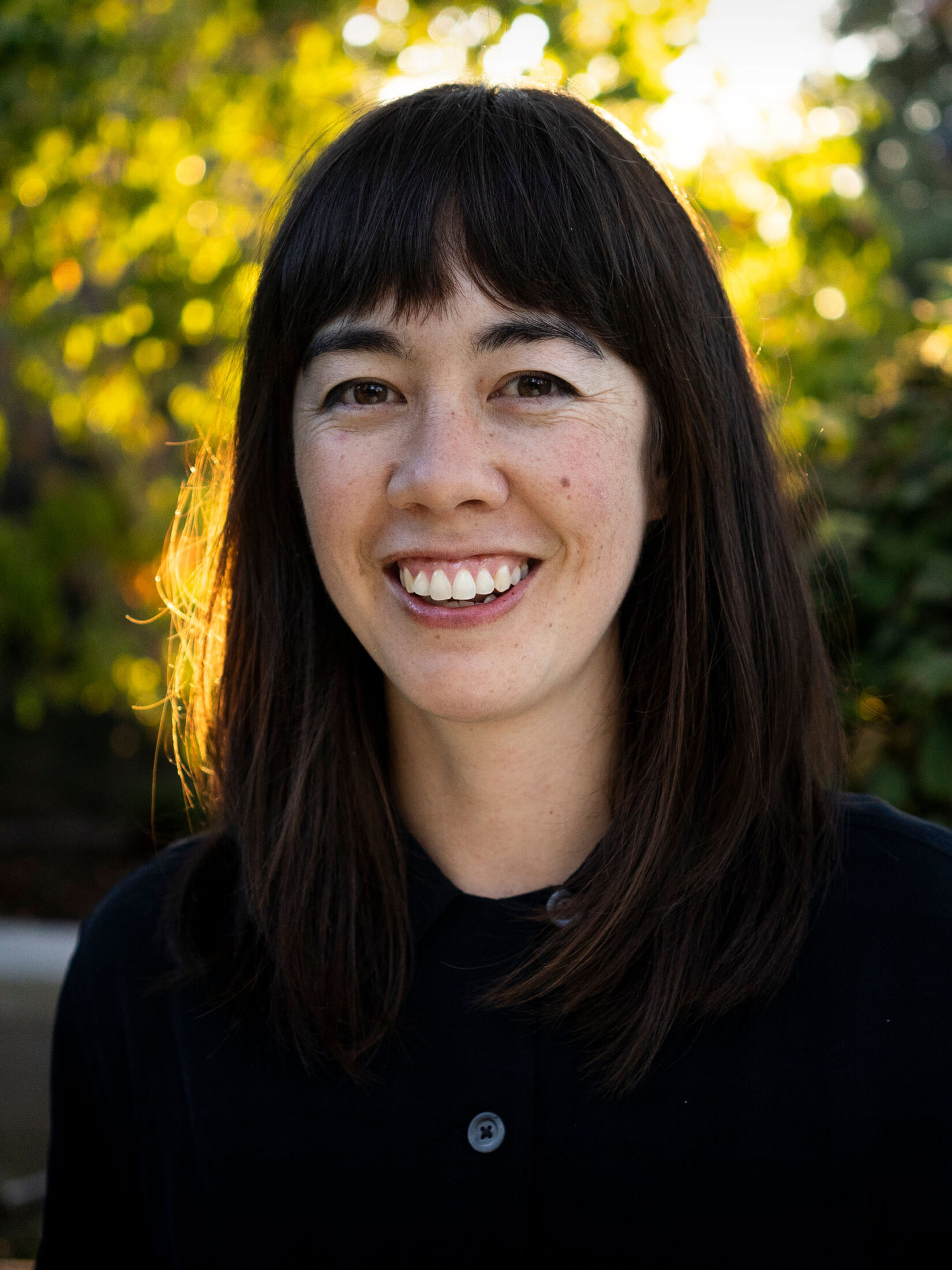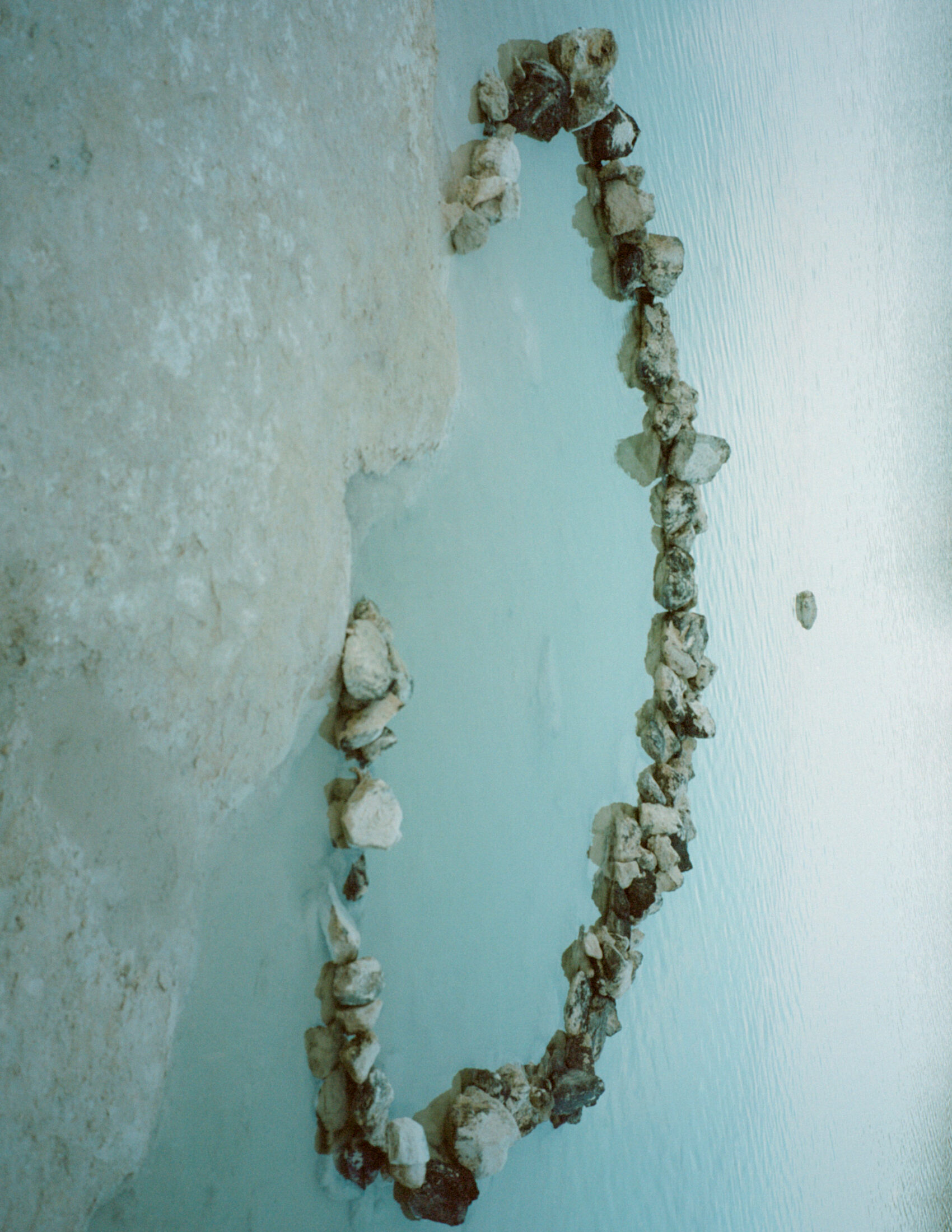
Remembering Earth Time
Emmanuel Vaughan-Lee is an author, Emmy- and Peabody Award–nominated filmmaker, and a Sufi teacher. He has directed more than twenty documentary films, including Taste of the Land, The Last Ice Age, Aloha Āina, The Nightingale’s Song, Earthrise, Sanctuaries of Silence, and Elemental, among others. His films have been screened at New York Film Festival, Tribeca Film Festival, SXSW, and Hot Docs, exhibited at the Smithsonian Museum and London’s Barbican, and featured on PBS POV, National Geographic, The New Yorker, and The New York Times Op-Docs. His new book, Remembering Earth: A Spiritual Ecology, is forthcoming from Shambhala in summer 2026. He is the founder, podcast host, and executive editor of Emergence Magazine.
This final talk given by Emergence executive editor and Sufi teacher Emmanuel Vaughan-Lee during our Remembering Earth Time retreat in Devon, England, offers a simple framework to understand Earth Time, not through a linear lens, but through the principles and practices of spiritual ecology. By reorienting ourselves to be in relationship with the essential cycles of life, we can perceive time as a dynamic, animate, and sacred expression of the love that permeates all things—an experience that can transform our hearts into time capsules, holding the essential language of love for the future.
Transcript
So, I wanted to start by sharing a few things in response to a request. A lovely woman from Donegal, who was sitting here yesterday after my apparently abstract talk on time and place, turned to me and said, Do you think you might be able to offer five key takeaways so that I can then integrate this into my life and my work? Now, I’m not really a five-key-takeaway kind of person, which you might have already gathered. Because I think the danger of trying to simplify anything into a prescribed set of actions limits the individual nature to express. Right? That’s just a fact, I think. If we tell five things you can do to save the world, we’re ending up with light bulbs and electric cars and planting trees. And those are all good steps, but they don’t ever go to the core of something.
I’ve always been much more interested in working with values and spiritual forms, and how those can be connected to how we engage with the world around us, at all levels—from within the systems that are inherently corrupt and challenging to work with, to the more pure ways that we can engage with the world around us, where these values can find root without having to fight against the status quo. I feel these values are applicable in all regards, but they must be individual; because where we’re from, who we are, what we believe—all of those things inform how we engage.
So I’m not a fan of the five-step plan. However, I woke up at 4:00 a.m., and I was thinking about this, and I couldn’t go back to sleep. So instead of a five-step plan, I wrote down what I feel is maybe a distillation of some of what I’ve been trying to share. I will say the choice to be abstract was deliberate. And maybe I’ll circle back to that after I share the distillation. It is five points, but it’s not a plan. And it’s not that different from what I’ve been saying, but perhaps condensed and linearized— Maybe I was kind of thinking, have I—what is it—chronos-ed my kairos as a result of this process? Maybe.
So, first point: We should not try to understand Earth Time through a lens based in linear time, for there is a danger in intellectualizing the process and experience that is Earth Time. We must instead try to relate to Earth Time through non-mental constructs: the body, the senses, our own cycles, and ultimately the heart.
Point two: Earth Time functions like emptiness and form. The essence of emptiness and form is love and the axis of all things. So that may appear abstract, but if you are familiar with the concept of emptiness in form, then perhaps it is not so. And for those who aren’t so familiar with emptiness in form, to give a very, very, very, very brief synopsis of emptiness in form: Emptiness is the space available when the self, the ego construct, is removed and the true nature of things becomes apparent: the interconnected nature of life—the interconnected interdependent nature of life—in a physical form and a metaphysical form. And the form is the way that appears. So that can be anything from the tree outside of our window to my own self, you know, any form. But inside of it, when the construct of our own self is removed, there is an interconnected interdependent reality. And at the core of that—what is at the core of that interconnected, interdependent reality? The Daoist would say, the way; in Qigong, it’s chi; in Sufism, we say love. So I have to use the language which is inherent to my way of seeing things. So to me the axis of all things, as I was saying on Thursday, is love. And to me Earth Time functions like this; because all these different ways it is manifest, and the way that it processes and moves through life—it’s a form, and it’s filled with emptiness, and at the core of that emptiness is love. And if we are able to tap into that side of ourselves (getting ahead to point three), however, then there is a connection that can be made.
Point three: If we’re able to return to this essence and consciously engage with Earth Time through the experience and language of love, we are able to break free of being a prisoner of linear time and begin to build relationships based on something real. When I say “something real,” I think of love, but you can think of energy that is undiluted and is the essence of who we are. Once the ego construct is removed, it’s already in the forms that do not take on a human appearance, because there is no ego construct. So that essence is already existing in all the forms that surround us. So the relational way of being, it’s there. It’s us who have to remove the constructs of the self, the constructs of linear time, the constructs of the ego, by connecting to these other forms: the senses, the body, the cycles, and then, the heart.
Next point: These relationships, when we are able to create them through these practices that we explored together these last few days, they leave an imprint. Because I spoke a lot about imprints yesterday. They leave an imprint that creates a bond. And this bond, over time, leads to kinship. It’s not that first imprint: it might be returning, building that relationship, just like a human relationship develops over time. You are returning to it, returning to it. Each time an imprint is left, that imprint builds up and it creates a bond. And that bond leads to kinship. And it also leads to ties in a relationship to place, which I spoke about yesterday. When these bonds are created—these ties are there, this relationship is present—you are then rooted in something that is rooted in place, and it brings us from observing Earth Time to participating in Earth Time. Once we are in relationship, we are participating; when we are trying to create a relationship, we are still the observer. We haven’t yet made it. At least we are actively involved, but most of us are still—and I’m speaking societally here, not necessarily the people in this room—on the outside, not in relationship. We’re not participating in this process of Earth Time, which of course is a metaphor for how the living world functions. We are looking in, not participating. Or we’re not looking in at all, to be honest: looking away, looking at ourselves.
This participation—this next point—is a form of communion with the living Earth. This participation is a form of communion with the living Earth. Once one moves from observer to participant, and you’re engaging as a participant in this space of relationship, there is a process of communion that deepens and unfolds. I think there’s a big distinction between connection and communion. It’s like, connection’s a kiss; communion, you’re going all the way—to be crude. Why not be crude? Abstraction leads to questions. Be direct. That was the hint. And communion—now let’s return to its broader definition—is an act of healing and transformation, a way of being that is needed to reweave the worlds of spirit and matter, to resacralize the living Earth. This is a practice of spiritual ecology. Because to me that is the practice—reweaving the world of spirit and matter through the act of communion in all the various forms that that takes. And that is very individual in nature, right? Because every single person will stand before a tree, a river, a mountain, a meadow, and engage with it differently, because each of us is different. To me that’s a very important thing. So I prefer these broader strokes.
But the reason I spoke abstractly, at times—deliberately abstractly—and this is part of a broader tradition that is very old. It’s part of my own tradition, at times; but it’s deeply woven, for instance, into Indigenous wisdom traditions, where there is no beginning or end to when you speak. It is like a circle. And the danger of trying to be concrete in explaining things like Earth Time is that then we linearize the process, we make it mechanical, we look at it through the lens of what is familiar instead of actually trying to unmoor ourselves from that and approach it, as I said yesterday, as a beginner trying to learn something for the first time; or returning to that state of wonder as a child, or that space of unknowing, that meditation—or the various forms of stillness—can bring us into. And as a culture, we’re very addicted to trying to understand things, even if we’re trying to create change or move deeper into spaces of connection through what is familiar: the intellectual, very modern Western way of thinking. The way of speaking abstractly is quite rooted in many cultures, still. It just is not rooted in ours. And this idea of “ecology”—we think of it through a scientific lens often. And that’s valid. But that’s like saying a house is four walls and a roof. Who built the house? Who lives in the house? Who made the house their home? And if we speak around something, then perhaps we allow what is at the center of that space to reveal itself, rather than to tell someone what it is, or to tell it what it is.
Also, it is a mystery, if you look at it from an essential spiritual point of view. And if something is a mystery, it is too vast to try to comprehend. Which is why I like the metaphor that Andri uses in the film [The Last Ice Age] to try to understand climate change: Climate change is like a black hole. It pulls everything in. You don’t know what it is. It’s too large to comprehend. The way it is revealed is by exploring what lies at the periphery, what lies at the edges. And there we can start to reveal and understand but not be sucked in.
Now he’s using that as a metaphor in the context of climate change being a negative thing, which it is. But I think the metaphor works in the context of trying to relate to a form that we really don’t understand because we’re not that form. How can you try to be a tree? No, you can’t. But you can try to place yourself in relation to that tree so that you are looking at it through eyes not dominated by a construct designed to separate you from the shared reality that that tree is a part of. And there, we can turn to what I’ve been trying to offer these last few days: this very simple set of practices, derived from spiritual practice, really—where you slow the mind and what is already inside of us begins to rise to the surface.
Because we are not just our minds; we are not just our conditioning; we are not just our inherited cultural way of being. We are something very different under all of that. And while we are different than a tree, there is a shared language between us and that tree, just as there is a shared language between us and every other form around us. And as I was saying, for me, that shared language is the essence of all things, the axis of all things: love—what is at the essence of form and emptiness. And that is what connects spirit and matter. Because if we remove ourselves and say, that is a tree, when we are looking at it, we are looking at a piece of matter from the outside—even if we are admiring that tree, even if we are saying that tree is sacred. That doesn’t mean anything. I mean, it’s a good icebreaker. But I mean it: it doesn’t mean anything. We like words a lot. We like concepts. I was trying to say on Thursday, we have to move away from the intellectual towards the experiential. That’s what Rumi was saying. Step out of the circle of time, step into the circle of love. And the truth is, as much as we have been trying to talk about love over the centuries, over the millennia—and Sufis are more guilty of this than anyone, trying to explain it and express it—it’s still elusive, it’s still so mysterious. We just try to put words to it. But in the end, it’s an experience. It’s an experience.
And this shift I feel that we are moving in and moving towards is in part an invitation to step more and more into experience. We cannot change the world through a mental construct. We cannot change the world through words alone. Words that are connected to experience, as the poets of old all discovered—that has weight. Policy language, less so, which is why the role of story and the storyteller to me is so important. How to take these linear ideas and turn them into a more alchemical way of understanding and relating, right? And in that story, there is also the essence of all things, that spirit. But as Andri was saying in the film, I think we have to look at what has been missing as we try to understand and respond to the crisis around us. And as he said so simply, what is missing is love and spirit and beauty. It’s not in the language of our governments, it’s not in the language of economists, it’s not in the language of social change and ecological five-point plans. It should be, and maybe it will become more so. Maybe it will become more so.
But this language of love, as I said, it is the key. If we can find that in ourselves—there are so many different ways to find that language. Just as everyone in this room has their own way, everyone has had their own experience with love in a human form, they will have their own experience with love, and are having it already, with the more-than-human world, and our four-legged friends and our winged friends. It is unique, but it is a language that is something that the tree can relate to, because it is the essence of all things. And I return to these points over and over again because it’s a method. If you speak around something, you return to some of these points. So that’s why I speak like that—it’s almost like an incantation, if you will, versus a way of delivering a linear speech that has a beginning and a middle and an end—and to remind and to let seep in, hopefully, these essential ingredients in how we can begin to move from observer to participant, so that we can move from connection to communion.
So abstraction can lead to discomfort, but I don’t think that’s a bad thing. It’s just like all the thousands of years that the Buddhists expressed emptiness in form, and the Daoists and the Zen practitioners—how did they do it? Through the koan, through the poem, through the landscape painting. (I doubt very much they described it as I did.) Because then you are taken into a space and you discover it for yourself. And we have to discover it for ourselves. If we are told what it is, then that is also a construct. If we are shown, without being direct, then we are invited to make a relationship, right?
No one likes being told what they are by somebody else. It gets very old. Our culture does it all the time. It doesn’t just tell us who we are, it tells us what we should buy—it tells us everything. And this process we’re going through, for me, isn’t just an ecological crisis or a spiritual crisis—it’s a human crisis! It’s a crisis on every, every single level. Everything needs to be reexamined, everything needs to be overturned. Including the basic ways we define ourselves, the basic ways we define our relationships.
So for me, a practice in spiritual ecology is not just a practice in spiritually relating to an ecology, or whatever you want to describe it as. It’s a way of life in which you are learning how to be in relationship from the truest part of yourself, and broadening that—from the space where we have been focused on that reality in spiritual forms, for a long time—to embrace the Earth again.
Religion, spiritual traditions around the world for millennia have talked about these things. The Golden Rule—but not for the Earth. And that’s a real distinction. I think that’s part of what is shifting. Not all spiritual traditions did that, but a lot did. And religion grew around those and became very, very, very dangerous, because those essential truths became tools for power and control. And they got unmoored and ripped from their roots. And so we have to return, strip bare, with—I always feel—humility. Because even if we are, and have always been in this life, drawn to reconnect on a deep level, we are complicit as well. Some of us more than others, depending on where we come from, what our ancestry is, what we have participated in. But we must have humility in all this. We are beginners again. Yes, it’s there, it’s buried deep, it’s inside of us—but we’re learning. And the attitude of a learner is so different from someone who knows what they’re doing, you know? Because we’re going to make mistakes. As much as our best intentions might offer us, we’ll go out into the woods and we will make it all about us. And we’ll go there, and: “This was a great experience for me.” You know? Because it’s hard. Remembering something as simple as the sacred nature of creation and what that means, what that asks of us—that’s really hard. To stay in constant awareness of something that is at the center of all things, and to relate to the world around us from that axis? To never let that be removed from your consciousness? That’s not easy. And maybe we’ll never get there, but we can try. But if we act as if we know what we’re doing, and we are in charge, and we are here to fix the world and save the planet—I get very tired of all that. And I think a lot of you do too. And perhaps that’s what drew you here: to return to something simpler, something more essential.
And hopefully whatever emerges from this space—these few days—in you, you take into your own life and you apply it in your own way. These principles of practice that I have shared, they are very, very malleable. You can do them anytime, anywhere, with anyone. You don’t have to come from any creed, background, religious framework, spiritual ideology, or anything. They pull from universal wisdom and universal truth. The simple practice. But I do believe that if we partake in it, it has the power to change ourselves—not change the world—change ourselves, transform and heal ourselves in the process. Not tomorrow, not next week, not next month; maybe further down the road.
And this further down the road is very important for me when I think about the future, and what our role is at this time, and where we are going. And I do believe that outer change is important, but I feel like that is basic. It’s like we should all be pretty good environmentalists by now: the basic simplicity of how we live our lives, you know? We know what the impacts are. Yes, we make our own choices. We eat meat or not; we fly, we don’t. But everyone in this room has read those books and those articles and those five-point plans, and we know the basic things of how we should live our lives. We really do. But I don’t believe that’s really going to change the world. I think the world is changing on its own. I think the world has its own agenda of what will happen. Yes, that’s very much because of what we have done, and we have set things in motion. And what will come to be, we will see. Who knows? You look at the science and you get a pretty good idea. And that science is pretty irrefutable if you really look at it and you understand what it means. Who knows? Some things might change: how much the sea level will rise, how hot it will really get, how many species will really die. So there is a story in motion there, and the world is changing. And some of the things we can do outwardly: yes, keep the oil in the ground, for God’s sake. That will slow and change things. But the story is in motion.
What I’m most interested in, and what is behind the scenes of some of the things I’ve been sharing about—and is at the heart of what Emergence really is trying to offer through story—is the power of the individual process of transformation. Not for one’s own sake, but for the sake of the whole. That can trickle into these other external forms, yes. But at the heart, it’s the power of what is possible when we begin to shift our awareness and practice and way of being to include the living Earth as part of who we are. As part of who we are.
Because as things fall apart over the next decades, the value of what is held within that process of transformation that we are undergoing as individuals is paramount. Because the keys for what’s going to unfold, the keys that will unlock the doors to the new world that might appear—whenever She wants to reveal Herself in the next decades, hundreds of years; who knows?—if it’s going to actually be able to take the seeds of what this past era has within it that are of value, those seeds are not going to be stored on a server. They are not going to live on a hard drive. Hard drives from ten years ago, they’re already gone. Server farms—what keeps them going? It’s not going to be that much before they’re gone, if you look at the reality of the situation.
How is the knowledge that is needed to help keep a thread alive, as this world comes to an end and a new one comes into being—how is that going to stay alive? It’s going to be through what is held within the human being and community. Human beings in relationship with other human beings. I think it will be small, because it’s much less corruptible when it’s small. And systems that are large, it’s so hard in this time we are in for them to—even with the best intentions—not become corrupt in some shape or form. It’s like it’s almost impossible. Small contained communities, individual human beings. Because the human heart is a lot harder to corrupt. It can be, but it’s a lot harder than a system that is large and exists in a model which itself is corrupt, and is based on capitalism and greed and extraction and desacralization.
But the human heart—and the process of the human heart returning—not a human heart who understands everything and holds all the seeds of wisdom for the new world and the new era inside of it. No, that’s arrogance. But a human heart who is learning again how to be. Because we as individuals, we as human hearts, we as spiritual hearts, we can be like time capsules, if you will, holding something inside of us as we deepen into it. That can be, I don’t want to say a tool, but a way to keep something alive inside of us. This process of returning to this essential nature of all things, of learning how to speak the language of love in its essence, of reorienting ourselves to be in relationship with the essential cycles of life, to understand time in a much broader way and allow that to change us—all of those things, they change our structure as beings. It can shift the fabric of who we are. And I don’t mean just on a mental level, but it can do that as well. Just like any real experience, if you allow it to filter up, it does change your way of thinking. But I’m always more interested in going to the root of something, and trying to access that point and let that change begin to bubble up versus trying to work with the system as it is and integrate it.
I think that has value in certain contexts. Someone the other day was saying, they work in a certain space where they have to play by certain rules, and asked whether that’s right to do that or not. And it’s like, yeah, sometimes you have to engage that way. But real change, anymore, I don’t think so. I really don’t. Maybe that’s just me.
I think it has to come from somewhere real inside of us. Which is why for me, as part of the plan, it was about returning to what is real. And of course, I’m meaning love there. And then these seeds inside of us, these ways of being—and they can include practical application, because there are many ways to apply what I’m sharing here elusively, in a grounded way, to how we must live as human beings and societies. Right? And what I’m saying is not new. It’s very old. And for me spiritual ecology is a framework for returning to something that’s very old, using a very simplistic language, because we’ve forgotten how to use subtlety to express it. And I find that quite sad sometimes, that we have to simplify things like that in order to relate to them.
But we are part of this process of what is unfolding. We have the capacity inside of us to hold this essential truth, to hold these seeds, to find ways to plant those seeds. I like that metaphor of seeds a lot, because seeds hold a whole blueprint for something, even if it is only going to be visible on the surface in decades or longer to come. Because we can talk about seventh generational thinking and cathedral thinking and all the different kinds of future thinking that we might need and do need, but if that thinking isn’t rooted in something that is real, then it’s another concept. And to be honest, if you are rooted in that way of being in what is real inside of you, this connection of love, the axis of all things, this relationship with the world around us as animate, alive, and sacred, then almost all of your acts will actually already be in line with that form of thinking, because it’s a natural extension.
Do you think they, long ago, sat around a boardroom table and devised seventh generational thinking? No. It was a natural extension of a way of being that may have become more formed as the years went by. But real change is rooted in what is real, and then what becomes an external representation of that is a natural reflection of it. And what I find so beautiful is it’s individual. You know, seventh generational thinking is a very wide frame, and it can be taken into lots of different ways. But it is valuable. Cathedral thinking, as well. But they must be rooted in this space of what is real.
And there is an additional piece—and this is esoteric, perhaps more esoteric than anything I’ve said—which is that when a human being or group of human beings hold knowledge inside of themselves—even if it is a few people, and actually, traditionally, it was usually a few people—that has more purpose and value than we realize from our current context and culture. You know, we think we are supposed to learn a way of being, a system of knowledge, and then we teach other people and that results in a ripple effect and change. And that is true, in part. It’s harder now. But there is a very ancient tradition that understands that when a human heart, and a human being, holds this knowledge of how to be in relationship in a broader capacity—like remembering Earth Time—it exists. It’s like it’s on a server, and people can access that server. But there are no wires, no fiber-optic cables, because it exists in a collective space, which is accessed when you have reached the end of your ability to stay confined to one form of reality. It’s esoteric. It’s like you have reached the end of your capacity to deal with linear time. You realize it’s not going to work anymore. There’s something wrong here. And yes, you can read books about it, and articles from Emergence, but it’s different: that, inwardly, something in you has reached its end point and it’s starting to look elsewhere. And if a system of knowledge is held inwardly, you can have access to it. Which is why, traditionally, small cultures, whether it would be the Kogi, as an example, who viewed themselves as the Elder Brothers of the world who held the knowledge of how to be in relationship with the world, including Earth Time, in a much more nuanced and remarkable way than I’ll ever be able to describe. They were a small tribe in Colombia—they held something, and they viewed it consciously as holding it for the well-being of the world, so that when someone needed access to something, it was there. Right? And there are many, many stories, ancient stories, of these examples. Because if those systems of knowledge do not exist—and I’m not meaning in a textbook or a web page or a podcast or a video—if they exist inwardly and are held within a human heart and a human system of knowledge—small—then that knowledge does not disappear.
It is the same way that we look at languages now, and we don’t really understand the value of what is lost when a language is lost. And those of you who might know my work know that I’ve spent a lot of time in this area, telling stories about language loss and language revitalization. And many languages are spoken by a small group of people. The majority of the world’s remaining languages are spoken by a small number of people. And people often wonder: Well, what’s the matter? That’s the evolution of the world. Everyone’s going to speak English and Mandarin, you know. That’s just where we’re headed.
But it’s like a way of being in relationship to a place is lost; a way of remembering Earth Time is lost; a way of expressing the real nature of someone in a community that grew up around it is lost. It is a system of knowledge. The names of plants as they were sung into existence is lost—because a lot of those languages were old enough to actually do that. There are names much older than Latin names. And when that language is lost, it’s like a light goes out, a whole way of being. The people, they continue, they adapt, they change, but something is lost. And they’ll tell you, if you talk to them; they’re aware of this.
But it is the same with other systems of knowledge. If it is alive within a human heart in a community, it is like there is a note being sung. And what I am most fearful of about the future is that there will be no notes left, and whatever emerges from the rubble will have forgotten everything that unfolded in the past. And so I think about what is the individual responsibility that we have at this time. If we are drawn, not just to respond to outer environmental and social change and be responsible human beings, ethically, morally, you know, relating to the world around us. Great! That’s a good start. But if we want to go deeper, what is our responsibility then? Because to me it’s not primarily to go on your own journey for your own spiritual salvation, it’s to be of service for the world by holding something inside of our beings, inside of our hearts. Not as experts, not as masters. We are not. There is a big difference between our ability to hold the system of knowledge and the people of old. But we do have the capacity, even if it’s a fumbling way that we walk as we try to learn this; so that then, maybe, in a hundred, two hundred years, these songs will still be there.
And I’m not the only one saying this at all. There are other people who say this, especially people who are part of those communities who actually understood and developed these systems of knowledge and held them for thousands of years without being corrupted. It’s like, you talk to some elders from certain traditions and they say, we’re just waiting it out for these white fellas to stop making a mess of it, and then we’ll pick it up again. But we have a role too. We do have a role: to hold this in our hearts as best we can.
And the beauty of it is it changes you. That’s not why we should do it, but it does change you. And it has the capacity to fill you with love and make you into a very different human being. And the way you relate can shift dramatically. Often it goes through a period of challenges, because letting go of one construct, familiarity, systems—it’s never easy. It’s why vulnerability is so important. My discussion yesterday was so important. But it does change you, and it can bring you into a deeper space inside of yourself. And once you’ve tasted that, you don’t want to go back. And you want to live from there. And you want to honor that by honoring all the interactions you have by letting those interactions reflect that part of oneself. It’s all so simple in the end.
And the challenge is how to do that with the noise of the world blasting in our ears, as we go back to our lives and our work: the busy London streets, downtown, towers of industry all around. How do you hold that in the midst of all this? The only way I know is it can’t be a practice that one does on a nice retreat in Devon. It has to be something that’s part of your everyday life. And you don’t have to go to special places to do anything that I’ve been saying. Because that stays within this idea that it has to be a certain way. No. But as I’ve said many times: She is limitless, and the opportunities that we have to engage with Her are limitless. We look up at the sky through the buildings. We may not see the stars, but it’s all around us. And if we integrate this into our life, wanting to bridge this gap from observer to participant and aim for communion—just as we take our children to school, work in our gardens, take a moment of silence in between the rush of our day and bring ourselves back to this essential truth, and say, I want to learn again how to be in relationship with You. And I don’t want to forget. I want again to remember how to be in relationship with You.
And just one last thing, because I think this is important too. Because this all sounds rather serious, right? And it is serious! We have to have joy in all this, and we have to have play in all this. That’s why I like that line from Brecht: There must be singing in the dark times. Singing about the dark times, but singing nonetheless. There must be joy. If the heart is involved, it cannot be purely misery. Eighty percent misery, but twenty percent joy! Because the celebration is needed—even if it feels like we’re celebrating the Titanic as it goes down. But we must have celebration. And that must be part of this too. Because if we are truly in a relationship with Her, yes, there is grief; yes, there is pain; yes, there is sorrow—because She expresses that as a result of what we do to Her. But the remarkable thing is that She offers so much celebration, love, life, creation, at the same time. She really does. So I always say, let’s learn from the best. Let’s try to mirror that. Let’s do our best. And I know it’s hard, it’s not easy. This world is very dark, it’s very dangerous. But we must try.
